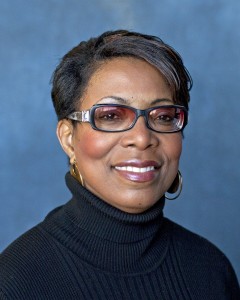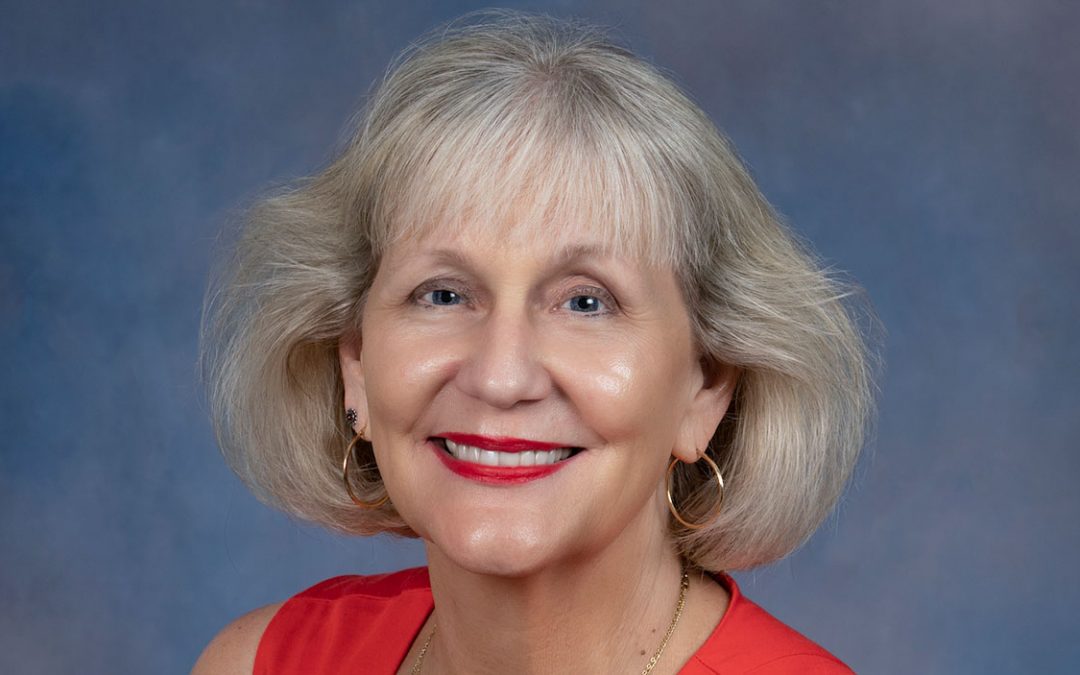
Anita Watkins-Stevens serves as the director of music ministries at New Sunny Mount Missionary Baptist Church. She will graduate Saturday with an MEd from UMSL.
Anita Watkins-Stevens is already a well-known and respected composer and choir director. Still, the self-described “life-long learner” enrolled two years ago in the Master of Music Education program at the University of Missouri–St. Louis and has since added research to her repertoire. She will graduate Saturday with an MEd from UMSL.
Watkins-Stevens, 59, serves as director of music ministries at New Sunny Mount Missionary Baptist Church based in north St. Louis. In October, the 64-member choir she oversees sang “For Every Mountain” before a crowd of 11,000 gospel fans at Scottrade Center. And for the second time in three years, they were crowned Best Choir in the St. Louis region at the Verizon Wireless How Sweet the Sound gospel competition.
Yes, Watkins-Stevens is a fervent fan of music. But the former middle school teacher also has strong feelings about education. She said it has been her life intent to complete academic work in a field that is not only her passion, but also her career.
“There is still so much to learn, and I have a curiosity about many elements of music and music making,” said Watkins-Stevens, a Jennings, Mo., resident. “I have a personal goal to remain a life-long learner, to have as much to offer as possible to my students, singers and music professionals in my field.”
Why did she feel UMSL was a fit for this pursuit?
“I wanted to attend an educational institution known for its professional tradition and quality degree programs,” she said. “UMSL has always been a shining star in the academic world in St. Louis.”
At UMSL, she took a graduate research class in music education taught by Fred Willman, Curators’ Teaching Professor of Music. Her research included taking a look at what makes a good choir program, which she did by surveying choir directors and singers from a variety of denominations.
“That led to her follow-up research on pregnant women who sing in a choir,” Willman said. “Her most recent research holds a great deal of potential for future study in an area that has had little or no prior attention from other researchers.”
After working years with choirs and individual singers, Watkins-Stevens had noted several female singers who had talked with her about their vocal abilities during pregnancy. Many of them had expressed concern and disappointment at not being able to vocalize as they had prior to pregnancy. A few of the women even had to quit singing altogether while pregnant due to finding it physically difficult to sing.
“In contemplating my subject for my master’s project, I knew this topic was a great opportunity to obtain some answers for myself as a choral director and a possible avenue of fresh knowledge to share with female singers in pregnancy,” Watkins-Stevens said.
Through surveys and interviews with women singers, she found that about half could not continue to sing during pregnancy, experienced difficulties with breath control, lost their upper range and regained only partial vocal restoration after birth.
More research could be in Watkins-Stevens’ future. She plans to pursue a doctorate in education at UMSL.
“It is my desire to teach at the collegiate level, and I want to acquire a stronger base of knowledge for this aspiration,” she said.
More information:
http://www.umsl.edu/~umslmusic
http://www.umsl.edu/commencement














